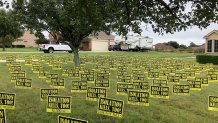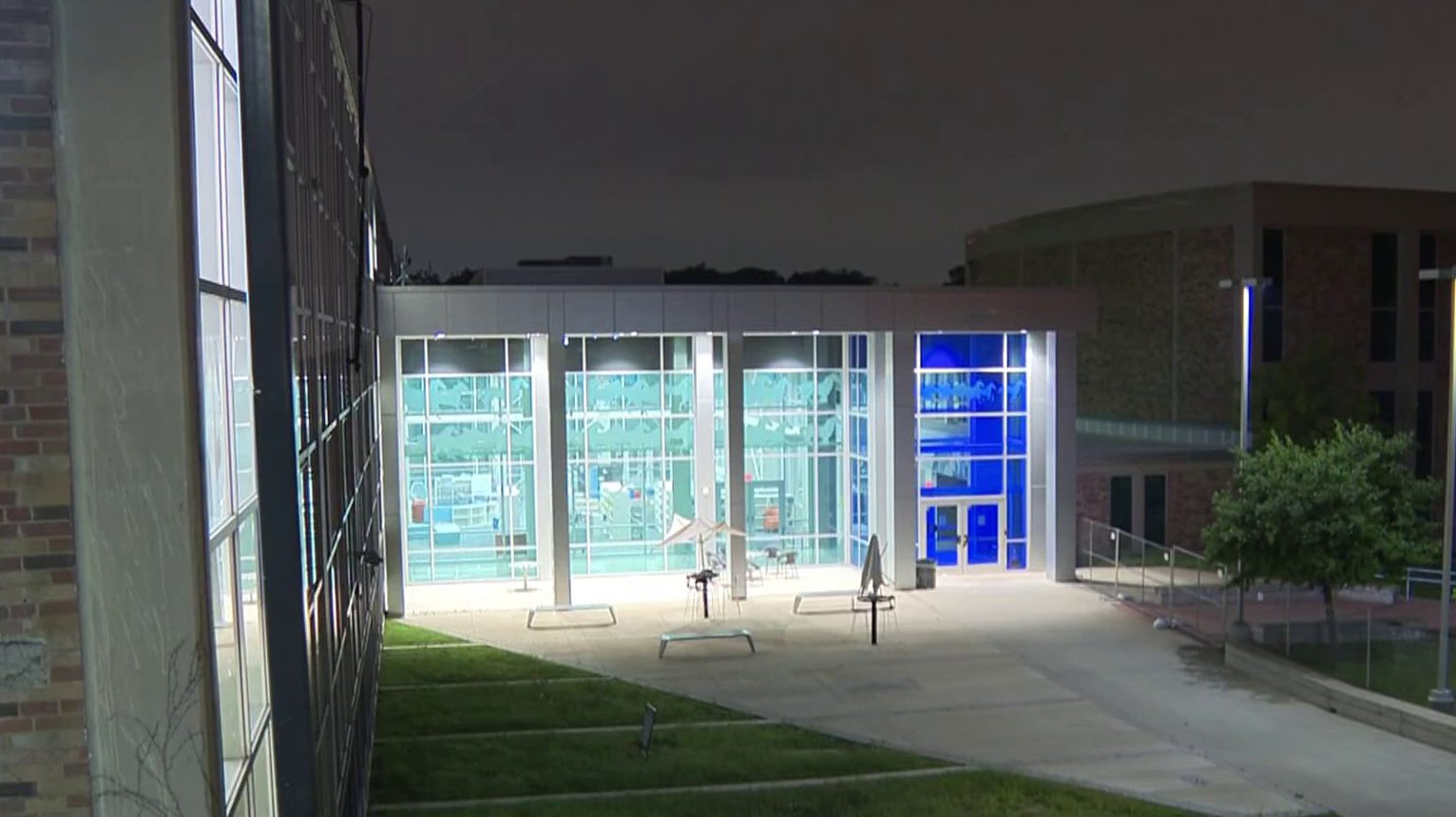North Texas families with loved ones with developmental disabilities living in state supported living centers say they feel hopeless.
While some visitations at long-term care facilities are resuming amid COVID-19, others are still restricting access due to the health crisis.
Drive by Stephanie Kirby’s lawn and you’ll see yard signs across her front yard with people’s names and the words: ‘Isolation Kills, Too!’

They aren’t political, but rather a plea for understanding and support.
The signs symbolize residents of state supported living facilities who have reportedly died during isolation and any facilities in the state, including nursing facilities, according to Texas for Caregivers for Compromise.
They also symbolize residents who continue to be physically separated from loved ones due to COVID-19 visiting restrictions.
Local
The latest news from around North Texas.
“We’re at day 181. It’s inhumane. Our loved ones are suffering. COVID is not the only danger to our loved ones,” said Kirby.
Kirby’s son, Petre, has lived at the Denton State Supported Living Facility for three years.
He’s 28-years-old, non-verbal and functions on the level of a three-year-old, she said.
Kirby says since March, she has only seen Petre in person at the hospital after he harmed himself twice.
Petre, she says, is extremely ‘self-injurious.’
Otherwise, this mother can only call the facility and attempt to talk to her son via FaceTime.
A task that is not always successful.
“Many times, he’s just crying and crying and crying. He cannot understand why mom vanished off the face of the earth,” she said. “I just tell him, 'Petre, I love you so much. You’re doing such a good job. I’m so proud of you. Mom is fighting every single day to see you.'”
According to Texas Health and Human Services, in order for visitations to resume at intermediate care facilities, there must be no confirmed cases of COVID-19 in staff for at least 14 consecutive days and no new, active cases in residents.
In a statement, the spokesperson for Texas Health and Human Services Commission says:
‘At this time, Denton SSLC does not qualify for limited visitation under current emergency rules for institutional settings, which require facilities have zero cases of COVID-19 in residents and staff for at least 14 consecutive days.’
According to the state’s self-reporting website, Denton’s facility reported 15 members and four residents with active cases of the coronavirus, on Wednesday.
The campus has nearly 1,400 staff members and 433 residents.
“That would be akin to asking the population of a small town to be COVID-free,” argues Kirby.
Mary Nichols with Texas Caregivers for Compromise says they’re seeking just that, an agreement on visitations.
“[That] the state of Texas allow each resident to have one support person,” she said. “We would be tested. We would be screened.”
Nichols says caregivers can provide their loved ones with necessary personal grooming.
“We’re not just visitors, we’re caregivers. We do a lot of things that take a burden off the staff,” she said.
The bright yellow yard signs will soon be moved to yet another family’s home in Texas, hoping their desperate plea is heard.
Asked what her biggest fear is, Kirby responded, “That I will never ever see my 28-year-old son again… I wake up thinking what if when I left on March 12, Petre thinks he did something wrong and so mom never came back.”
The spokesperson for HHSC said in a statement:
"Our top priority remains the health and safety of people in state supported living centers and we are continually assessing how to keep residents and staff safe in the facilities we operate. We understand the hardship and isolation that many families have endured during the COVID-19 pandemic. We're working toward reuniting families as safely and as quickly as possible.
HHSC is constantly reviewing and assessing its regulatory rules in this rapidly evolving pandemic and updating them when necessary based on guidance from the Centers for Disease Control and Prevention, Centers for Medicare and Medicaid Services and Texas Department of State Health Services."



